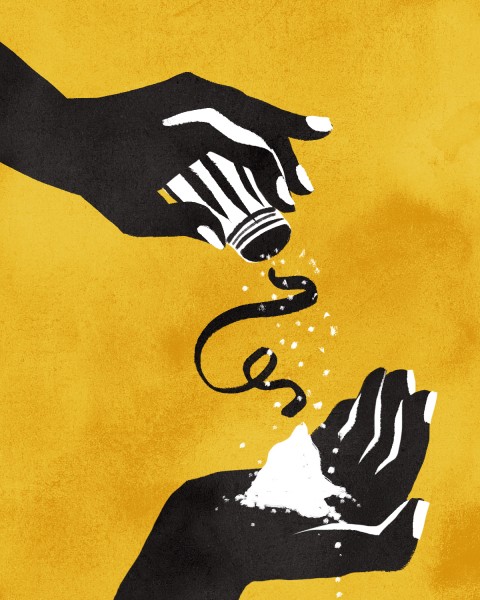Being salt
When I got into cooking, it changed the way I understand Jesus’ statement, “You are the salt of the earth.”

(Illustration by Lilli Carré)
In my late 30s I began to be the primary cook for our family. It started with a few simple recipes, slowly adapting them to our tastes and experimenting with different ingredients. Somewhere in the process, I became my mother, throwing in dashes of salt until it smelled or tasted right. I learned quickly how too much or too little changed what we experienced when we ate. Cooking began a new relationship to food, an attentiveness to what got eaten quickly and what was left cold and untouched. It made me appreciate, enjoy, and attend to all the food I ate in a new way.
It’s not unlike appreciating an artist’s painting even more after I pull out some old acrylics and try to replicate something I saw in a museum. The process of creation connects me to the materials of this world in ways that open up meaning.
This experience of the world also changes how we read and see one another—and, I think, the way we read scripture. Cooking made me attentive to scripture in a different way. I was reading through the Sermon on the Mount recently and found myself lingering over Jesus’ exhortation that we are salt (Matt. 5:13). Growing up I always heard it, in a strange slight of sound, as “be salt.” And so much of my life in my early Christian years was spent trying to follow this command. I did my best, but I could never quite be the preservation of the world this call seemed to require of me.




